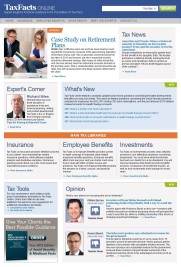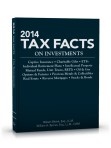Master Limited Partnerships’ (MLPs)
Posted by William Byrnes on March 20, 2014
By Theron West and William Byrnes.
Why Are Wealth Managers Interested In MLPs?
According to the National Association of Publicly Traded Partnerships, Master Limited Partnerships (“MLPs”) have reached a market capital of $400 billion, with over 100 MLPs traded on major exchanges. Generally established as LLCs with advantageous partnership flow through tax treatment, MLPs present attractive return vehicles to attract long term capital to the energy extraction, energy transportation (“midstream”), and most recent, energy distribution (“downstream”), markets.
MLPs have offered profitable vehicles for “midstream” businesses, that is, businesses that own assets which focus primarily on the transportation of natural resources like natural gas or crude oil. One reason that midstream assets have been so profitable is that the pipelines and ships act as toll roads for the natural resources. By owning these midstream assets many MLPs can avoid the volatility of the oil and gas markets directly by charging a fixed price for the units shipped. However, in recent years many MLPs have entered into the “downstream” asset business, that is, the refining, processing or marketing of natural resources.
What is an MLP?
At the most basic level, the MLP is a type of publicly traded entity that is taxed as a partnership, but publicly traded on a national securities market in the same manner as corporate stock. M any investors are attracted to invest in MLPs because of this type of security’s high yield offer of return. MLPs entice investors by contractually agreeing to distribute quarterly all available cash.
How is an MLP Taxed?
IRC Section 7704 provides that a publicly traded partnership will be taxed as a corporation unless the partnership meets certain gross income requirements. A partnership satisfies the gross income requirements when at least 90 percent of the partnership’s gross income is “qualified income.” Some forms of qualified income include interest, dividends, real property rents, income and gains derived from the exploration, development, mining or production, processing, refining, transportation (pipelines, ships, trucks), or the marketing of any mineral or natural resource.
Mutual Funds Investors?
IRC Section 851 was amended by the American Jobs Creation Act of 2004, and now provides that a RIC may include “net income derived from an interest in a qualified publicly traded partnership” in calculating its 90 percent income requirement. Essentially, this amendment provided mutual funds the ability to diversify their portfolios because any income derived from the MLP will not affect its status as a RIC. Still, there are significant limitations imposed on the ability of a mutual fund to invest in MLPs. A mutual fund is not permitted to invest more than twenty-five percent of its assets in a MLP. Nor are mutual funds permitted to own more than 10 percent of the interests issued by a MLP.
2014 Tax Facts on Investments provides clear, concise answers to often complex tax questions concerning investments. Pertinent planning points are provided throughout.
Organized in a convenient Q&A format to speed you to the information you need, 2014 Tax Facts on Investments delivers the latest guidance on:

- Mutual Funds, Unit Trusts, REITs
- Incentive Stock Options
- Options & Futures
- Real Estate
- Stocks, Bonds
- Oil & Gas
- Precious Metals & Collectibles
- And much more!
Key updates for 2014:
- Important federal income and estate tax developments impacting investments, including changes from the American Taxpayer Relief Act of 2012
- Expanded coverage of Reverse Mortgages
- Expanded coverage of Real Estate Investment Trusts (REITs)
- More than 30 new Planning Points, written by practitioners for practitioners, in the following areas:
- Limitations on Loss Deductions
- Charitable Gifts
- Reverse Mortgages
- Deduction of Interest and Expenses
- REITs
The company also points out that the expert authors—Robert Bloink, Esq., LL.M., and William H. Byrnes, Esq., LL.M., CWM®—are delivering real-life guidance based on decades of experience.
“The authors’ knowledge and experience in tax law and practice provides the expert guidance for National Underwriter to once again deliver a valuable resource for the financial advising community,” added Kravitz.


volkankorkmazer said
Reblogged this on volkankorkmazer.
LikeLike